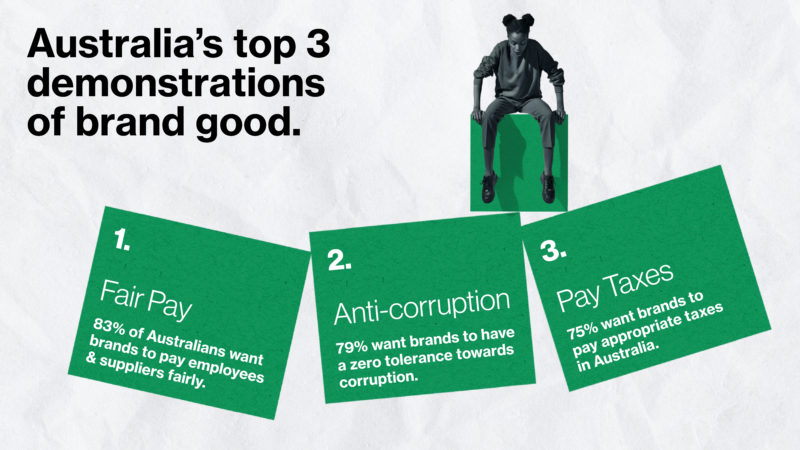Consumers value brands’ people and financial credentials: Leo Burnett Good Study
Publicis creative agency, Leo Burnett, has released its 2022 Good Study, revealing that Australian consumers prioritise a brand’s treatment of people and financial integrity of environmental and societal good when it comes to evaluating ‘brand good’.
Here, 82% of Australian believed a brand is good if it treats people fairly and respectfully, 78% viewed financial integrity as an indicator of goodness, while environmental and societal good sat lower on 76% and 75%, respectively.


